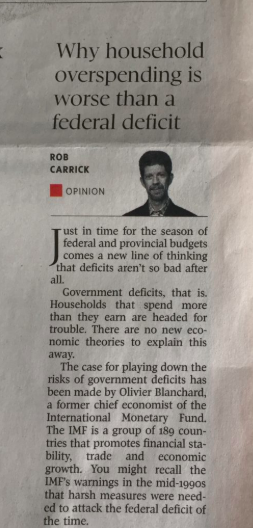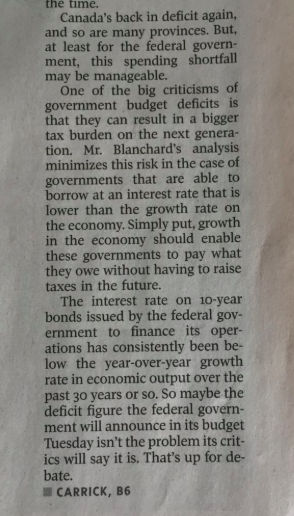With the recent Federal budget announcement and the upcoming April 11 Ontario provincial budget announcement, we thought that Globe and Mail columnist Rob Carrick’s opinion piece from March 18, 2019 entitled, “Why household overspending is worse than a federal deficit” was worth some conversation.
For decades, the comparison has readily been drawn between our personal household budgets and those of governments. We all acknowledge that spending more than we make each year is a bad idea and that logic seemed to easily transfer to government spending – that if a government spends more than it takes in from taxes, that is a bad idea. Full stop.
However, in Carrick’s opinion piece, he considers a new line of thinking put forward by Olivier Blanchard, a former chief economist of the International Monetary Fund (IMF). Blanchard counters the big criticism of government budget deficits – namely, that they can lead to a bigger tax burden for future generations due to interest payments. He proposes that the risk of a higher tax burden for future generations can be minimized in the case of governments that are able to borrow money at an interest rate that is lower than the growth rate of the economy. If this is the scenario, then a government could pay what they owe without raising taxes in the future.
Carrick goes on to say that there are no excuses for household deficits because the math will never work for individual household deficits to make sense. Individuals pay much higher interest rates to borrow than governments and individual debt does not generally lead to higher wages (the equivalent of economic growth for governments).
So as we consider critiquing government budgets, let’s keep in mind that “deficit spending by governments can produce a net benefit if it results in improved hospitals, highway, or public transit.
Household overspending never makes sense.”


